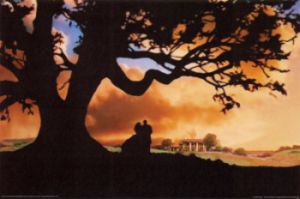While we were living in Ohio, my father arranged for workmen to come and do some kind of work in the yard near the front of the house. I was about three, so I have no idea what they were going to be doing, but I do remember my mother sitting my sister and me down for one of those serious talks we had from time to time on any number of subjects. She was concerned that we might say something wrong when the workmen showed up. See, they were black, and you just didn’t encounter that many black people in rural Ohio, in the mid-1950s. (Even today, the African American population of the area is only 0.14%.)
 My mother had lived for a while in the south and had read a lot of southern fiction and fancied herself quite enlightened when it came to matters of race. In actual fact, although her heart was in the right place and she really wanted to like black people, she hadn’t known any, and her ideas on what it meant to be black came from the white authors of all that southern fiction she had read. She had seen and soaked up Gone with the Wind, but then what resident of Atlanta had not? It ran in the theaters there continuously for years after its 1939 premiere.
My mother had lived for a while in the south and had read a lot of southern fiction and fancied herself quite enlightened when it came to matters of race. In actual fact, although her heart was in the right place and she really wanted to like black people, she hadn’t known any, and her ideas on what it meant to be black came from the white authors of all that southern fiction she had read. She had seen and soaked up Gone with the Wind, but then what resident of Atlanta had not? It ran in the theaters there continuously for years after its 1939 premiere.
Thus it was that her concept of blackness was nothing much more than a collection of black stereotypes, but to her credit, she acknowledged the ones she considered “positive” and rejected the rest, the overtly negative and threatening stereotypes that could make an unknown other so…what is the term? Unlikeable? It had been no great feat to hear these kinds of stereotypes spouted and expounded upon in the south. She was accomplishing something, at least, by rejecting all that kind of talk. The fact is, of course, that stereotypes, by their nature, tend to be negative, perhaps especially the ones my mother considered so “positive.” They all diminish the humanity of the person being stereotyped.
Anyway, with nothing much to go on but her good intentions, my mother instructed us that we could “hurt the black men’s feelings” if we stared at them or said the wrong thing to them. I suppose she thought we’d go up to them and try to rub the pigment off their skin or something–who knows? I remember being largely oblivious to the men or what they were doing or what color they were. Even at that age, I hardly felt it realistic to think anything I’d say might have any impact on them at all.
So, out we went on a bright day. It must have been spring or fall because I remember the chill air and the piercing voice of my sister, looking back through the door as we stepped outside, saying, quite cheerily, “Don’t worry, Mommy. I won’t say anything about those black men.”
I happened to be in an advantageous position. Having gone out first, I could see “those black men” working right next to the porch. I also could see my mother’s face inside the front door. There was a moment. And then it passed. The workmen smiled widely, knowing that at least my mother had tried. My mother smiled wanly, knowing that her best efforts had almost done what she had tried so hard to avoid. She closed the door gently, and my sister and I went on out to play in the yard.
My mother checked on us rather more often that day than she usually did. Perhaps she was, as she said, “trying to make sure we were staying out of the way.”